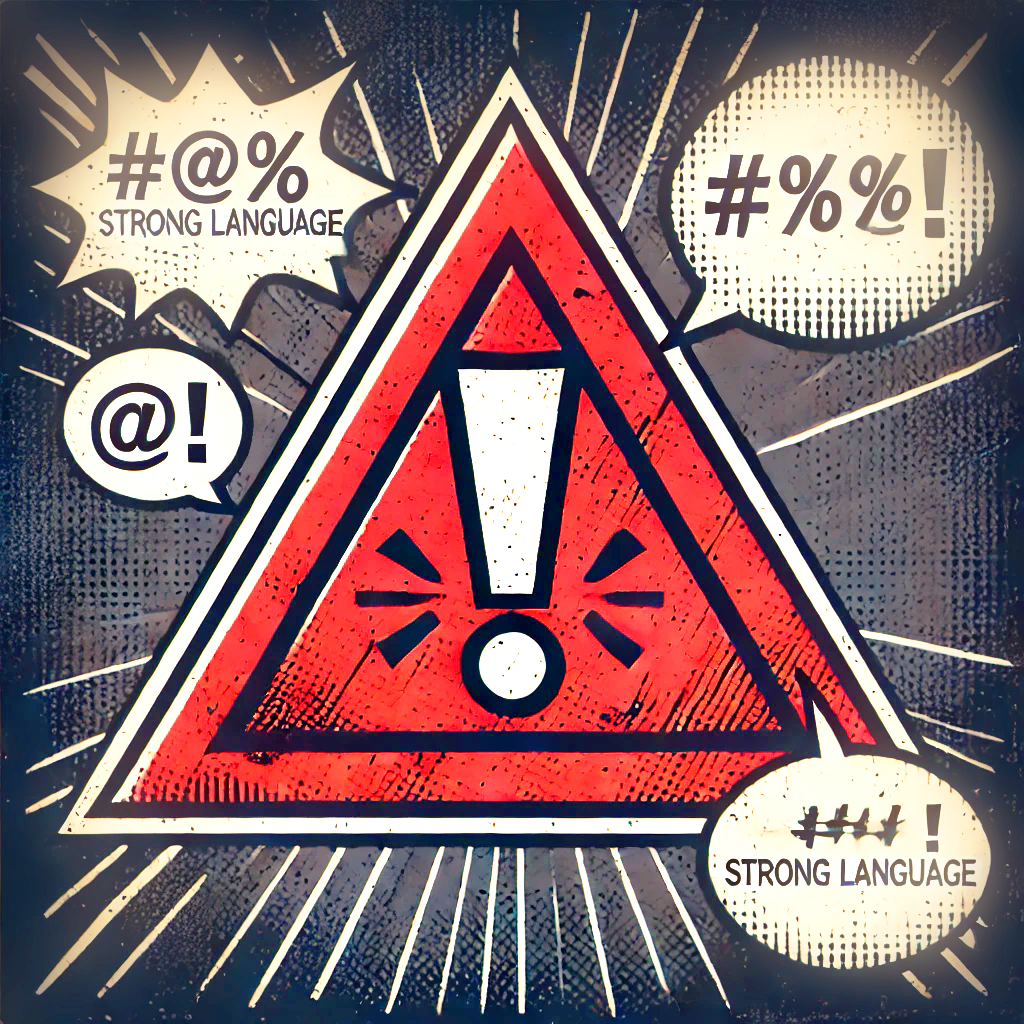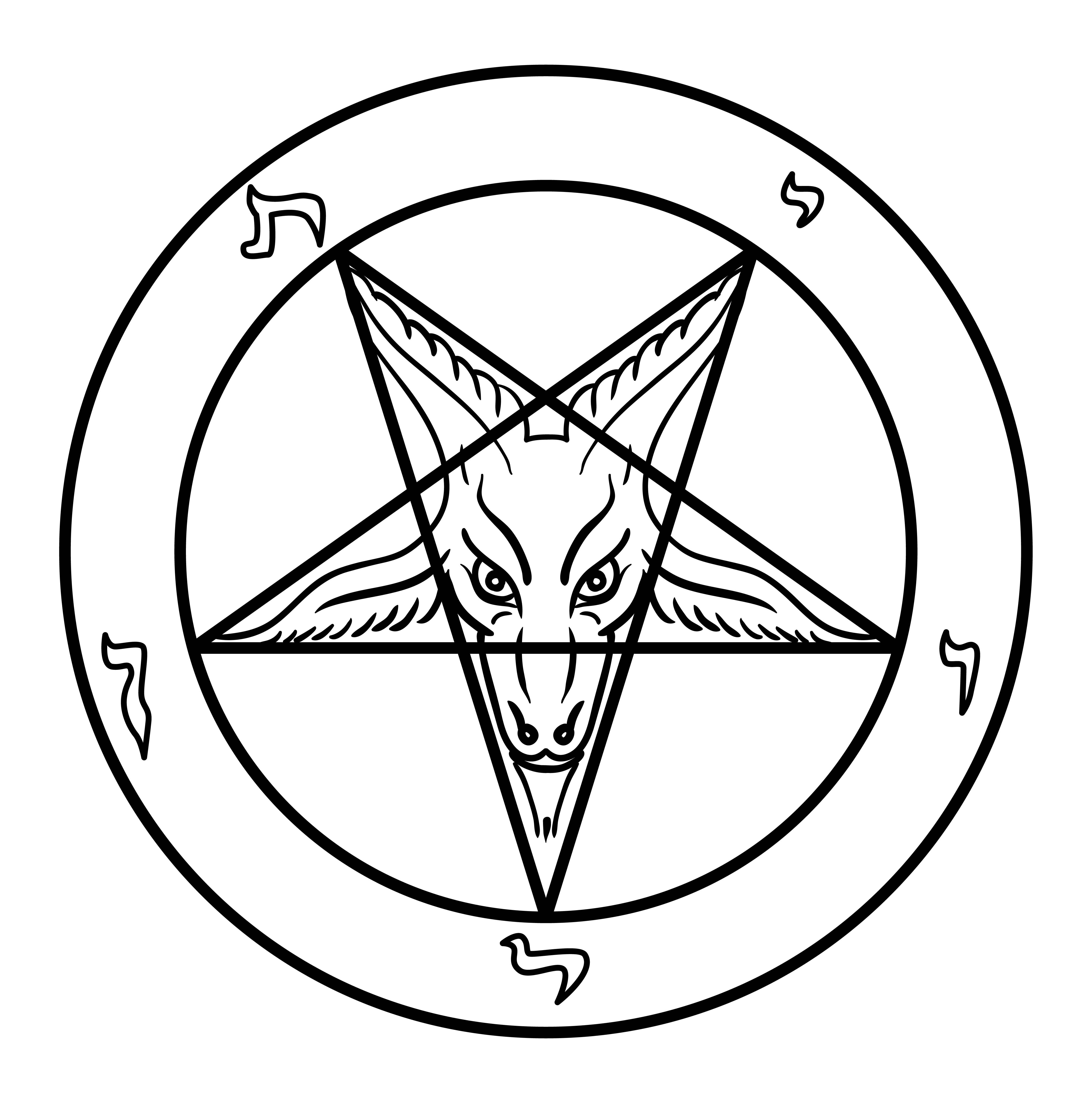What is Satanism?
Satanism is an atheistic religion that is based on an Epicurean philosophy of rational self-interest.
Satanism is a non-theistic religion that views Satan as a symbol of the self, the ego, and the carnal nature of humanity.
Why call it Satanism?
It’s called Satanism because it is fun, it is accurate, and it is productive. This means that it encapsulates our belief in enjoying life being true to ourselves and taking responsibility for our actions. It’s about finding strength, meaning, and fulfillment in living life on our own terms. Anton LaVey chose the name Satanism to shock and challenge the prevailing moral and religious values of his time.
What Satan is to a Satanist
Satan is viewed as a metaphor for the individual’s own ego and personal power. Satanists believe that each person is their own highest power and makes their own destiny. Satan is seen as a symbol for the exploration and celebration of the self, and for the rejection of oppressive ideologies.
Satan, as viewed by a Satanist, is a symbol or metaphor for the self, the ego, and the carnal nature of humanity.
Origin of the word “Satan”
The word “Satan” is of Hebrew origin and simply means “adversary” or “accuser”. It was used as a title rather than a personal name, referring to a figure (human or otherwise) that opposes or challenges individuals in their actions or choices. Satanists use the word to symbolize their rejection of the Abrahamic religions and their values, as well as their affirmation of their own individuality and freedom.
What does it mean to be “Your Own Highest Power”?
Being “one’s own highest power” means that individuals are encouraged to prioritize their own needs, desires, and well-being. Instead of relying on external forces such as gods, deities, or external authority figures, Satanism promotes the idea that individuals have the capability and responsibility to shape their own lives, make their own decisions, and define their own values and goals.
The concept of being “one’s own highest power” in Satanism does not imply that a person is exempt from the laws of government or nature. Instead, it emphasizes personal responsibility, autonomy, and self-determination.
However, this does not mean that one is above the laws of society or the laws of nature. In fact, Satanism acknowledges the importance of functioning within the societal framework and obeying laws to maintain order and avoid unnecessary conflict. The concept doesn’t promote breaking laws or disregarding the natural world.
Ultimately, being “one’s own highest power” is a philosophical stance that encourages personal growth, rational thinking, and the pursuit of individual happiness while still acknowledging the practicalities of living in a society governed by laws and shaped by the forces of nature.
Core Tenets and Philosophies
The Nine Satanic Statements as they originally appeared in the Satanic Bible © 1969
- Satan represents indulgence instead of abstinence!
- Satan represents vital existence instead of spiritual pipe dreams!
- Satan represents undefiled wisdom instead of hypocritical self-deceit!
- Satan represents kindness to those who deserve it instead of love wasted on ingrates!
- Satan represents vengeance instead of turning the other cheek!
- Satan represents responsibility to the responsible instead of concern for psychic vampires!
- Satan represents man as just another animal, sometimes better, more often worse than those that walk on all-fours, who, because of his “divine spiritual and intellectual development,” has become the most vicious animal of all!
- Satan represents all of the so-called sins, as they all lead to physical, mental, or emotional gratification!
- Satan has been the best friend the Church has ever had, as He has kept it in business all these years!
The Eleven Satanic Rules of the Earth by Anton Szandor LaVey
- Do not give opinions or advice unless you are asked.
- Do not tell your troubles to others unless you are sure they want to hear them.
- When in another’s lair, show him respect or else do not go there.
- If a guest in your lair annoys you, treat him cruelly and without mercy.
- Do not make sexual advances unless you are given the mating signal.
- Do not take that which does not belong to you unless it is a burden to the other person and he cries out to be relieved.
- Acknowledge the power of magic if you have employed it successfully to obtain your desires. If you deny the power of magic after having called upon it with success, you will lose all you have obtained.
- Do not complain about anything to which you need not subject yourself.
- Do not harm little children.
- Do not kill non-human animals unless you are attacked or for your food.
- When walking in open territory, bother no one. If someone bothers you, ask him to stop. If he does not stop, destroy him.
The Nine Satanic Sins by Anton Szandor LaVey
- Stupidity
- The top of the list for Satanic Sins. The Cardinal Sin of Satanism. It’s too bad that stupidity isn’t painful. Ignorance is one thing, but our society thrives increasingly on stupidity. It depends on people going along with whatever they are told. The media promotes a cultivated stupidity as a posture that is not only acceptable but laudable. Satanists must learn to see through the tricks and cannot afford to be stupid.
- Satanism emphasizes the importance of critical thinking and intelligence. Stupidity, in this context, refers to willful ignorance and a lack of intellectual curiosity.
- Pretentiousness
- Empty posturing can be most irritating and isn’t applying the cardinal rules of Lesser Magic. On equal footing with stupidity for what keeps the money in circulation these days. Everyone’s made to feel like a big shot, whether they can come up with the goods or not.
- This refers to the act of pretending to be something you’re not, often to impress or deceive others. Satanism values authenticity and honesty.
- Solipsism
- Can be very dangerous for Satanists. Projecting your reactions, responses and sensibilities onto someone who is probably far less attuned than you are. It is the mistake of expecting people to give you the same consideration, courtesy and respect that you naturally give them. They won’t. Instead, Satanists must strive to apply the dictum of “Do unto others as they do unto you.” It’s work for most of us and requires constant vigilance lest you slip into a comfortable illusion of everyone being like you. As has been said, certain utopias would be ideal in a nation of philosophers, but unfortunately (or perhaps fortunately, from a Machiavellian standpoint) we are far from that point.
- Solipsism is the belief that one’s own mind is the only thing that exists and that other minds or realities are mere illusions. This sin warns against self-centeredness and a lack of empathy for others.
- Self-deceit
- It’s in the “Nine Satanic Statements” but deserves to be repeated here. Another cardinal sin. We must not pay homage to any of the sacred cows presented to us, including the roles we are expected to play ourselves. The only time self-deceit should be entered into is when it’s fun, and with awareness. But then, it’s not self-deceit!
- Being honest with oneself is crucial in Satanism. Self-deceit involves deluding oneself about personal qualities or actions.
- Herd Conformity
- That’s obvious from a Satanic stance. It’s all right to conform to a person’s wishes, if it ultimately benefits you. But only fools follow along with the herd, letting an impersonal entity dictate to you. The key is to choose a master wisely instead of being enslaved by the whims of the many.
- This sin rejects blindly following social norms and pressures. It encourages individuals to think for themselves and not to conform simply for the sake of fitting in.
- Lack of Perspective
- Again, this one can lead to a lot of pain for a Satanist. You must never lose sight of who and what you are, and what a threat you can be, by your very existence. We are making history right now, every day. Always keep the wider historical and social picture in mind. That is an important key to both Lesser and Greater Magic. See the patterns and fit things together as you want the pieces to fall into place. Do not be swayed by herd constraints—know that you are working on another level entirely from the rest of the world.
- This sin warns against losing sight of the bigger picture and getting caught up in minor details or trivial matters.
- Forgetfulness of Past Orthodoxies
- Be aware that this is one of the keys to brainwashing people into accepting something new and different, when in reality it’s something that was once widely accepted but is now presented in a new package. We are expected to rave about the genius of the creator and forget the original. This makes for a disposable society.
- It’s important to remember the lessons of history and not to ignore the mistakes and lessons of the past.
- Counterproductive Pride
- That first word is important. Pride is great up to the point you begin to throw out the baby with the bathwater. The rule of Satanism is: if it works for you, great. When it stops working for you, when you’ve painted yourself into a corner and the only way out is to say, I’m sorry, I made a mistake, I wish we could compromise somehow, then do it.
- While pride is valued in Satanism, excessive and unearned pride can lead to arrogance and negative outcomes.
- Lack of Aesthetics
- This is the physical application of the Balance Factor. Aesthetics is important in Lesser Magic and should be cultivated. It is obvious that no one can collect any money off classical standards of beauty and form most of the time so they are discouraged in a consumer society, but an eye for beauty, for balance, is an essential Satanic tool and must be applied for greatest magical effectiveness. It’s not what’s supposed to be pleasing—it’s what is. Aesthetics is a personal thing, reflective of one’s own nature, but there are universally pleasing and harmonious configurations that should not be denied.
- This sin emphasizes the importance of creating and appreciating beauty in all aspects of life. Neglecting aesthetics can lead to a dull and uninspired existence.
1: Original interpretation
2: Grumps’ Take
Atheism
Atheism is like giving a simple answer to just one question: “Do you believe in a god or gods?” If someone says they are an atheist, it means they are saying “No, I don’t believe in any gods.” That’s all atheism is about – it’s an answer to that specific question. It doesn’t say anything about what they believe or how they live. It’s like if someone asked you if you like a certain food, and you said “No.” That’s your answer to that one question, but it doesn’t tell anyone everything else about you.
Atheistic Religion
Religion is often thought of as a set of beliefs, practices, and values that revolve around questions about the nature of existence, morality, and the purpose of life. While many traditional religions involve gods or deities, there are also belief systems that don’t center around these divine beings. These non-theistic belief systems might focus more on principles, philosophies, and rituals that guide followers in understanding themselves and the world around them. These belief systems can provide a sense of community, purpose, and moral guidance without necessarily aiming to provide definitive answers to life’s big questions.
Satanism is an Atheistic Religion
Satanism is a unique belief system that might sound a bit unusual at first. Even though the word “Satanism” is in its name, it’s not like what you might imagine from stories or movies. In Satanism, people don’t actually believe in a real devil or worship any supernatural beings.
Instead, Satanism uses the idea of Satan as a symbol to represent certain important ideas. It’s a way of thinking that focuses on individualism, being your own boss, and making your own choices. People who follow Satanism believe in themselves and their own abilities, and they don’t depend on gods or other magical things.
So, even though it has “Satanism” in its name, it’s not about believing in a devil. It’s more about believing in yourself and being in control of your own life. That’s why Satanism is considered an atheistic religion – because it doesn’t involve believing in gods or supernatural powers.
Responses to Criticisms
- Criticism: Satanism promotes selfishness and narcissism.
- Response: “Satanism encourages personal responsibility and self-improvement, not selfishness. We believe in pursuing our desires and goals while respecting the autonomy and rights of others. It’s about empowering ourselves to be better individuals.”
- Criticism: Satanism is blasphemous and offensive.
- Response: “We understand that our beliefs challenge traditional religious norms, but we see it as a form of skepticism and a rejection of dogma. We don’t aim to offend; rather, we seek to encourage critical thinking and individual choice.”
- Criticism: Satanism uses satanic symbols and rituals, which can be unsettling.
- Response: “Our use of symbolism and rituals is not meant to harm or frighten others. It’s a tool to provoke thought and engage with our philosophy. Just as some religions have their own rituals, we have ours to express our beliefs.”
- Criticism: Satanism rejects moral values and promotes amorality.
- Response: “We don’t reject all moral values. Instead, we advocate for a personal moral code based on individual assessment and responsibility. It’s about finding what works for each person rather than following an external, one-size-fits-all code.”
- Criticism: Satanism is associated with extremism and violence.
- Response: “While there may be individuals who misuse the label of Satanism, mainstream Satanism, as Codified by LaVey, does not endorse or promote violence or extremism. We are committed to personal growth and self-empowerment without harming others.”
- Criticism: Satanism lacks spirituality and a higher purpose.
- Response: “We focus on individual empowerment and self-discovery rather than traditional spirituality. Our ‘higher purpose’ is to lead fulfilling lives and achieve personal goals, which we see as meaningful in their own right.”
- Criticism: “Satanism is blasphemous and offensive because it rejects the existence of God.”
- Response: “We don’t see it as blasphemy; we simply don’t believe in a god or gods. Our philosophy is rooted in atheism and the rejection of supernatural claims. It’s about embracing personal empowerment and questioning traditional religious beliefs.”
- Criticism: “Satanism promotes selfishness and unethical behavior.”
- Response: “Our philosophy encourages self-interest and personal growth, but it doesn’t advocate harming others. We believe that by focusing on our own well-being and desires, we can become better individuals and contribute positively to society.”
- Criticism: “The Satanic imagery and rituals are disturbing and offensive.”
- Response: “The symbolism and rituals are intentionally provocative to challenge societal norms. They are not meant to be taken literally but as tools for self-reflection and empowerment. We understand they might be unsettling to some, but they serve a specific purpose in our philosophy.”
- Criticism: “Satanism lacks moral values and promotes moral relativism.”
- Response: “While we reject traditional religious morals, we do have our own code of ethics based on rational self-interest. Our values center on personal responsibility and respect for others’ rights and autonomy.”
- Criticism: “Satanism is just a rebellious phase.”
- Response: “For many of us, it’s a serious and lifelong philosophical choice. We believe in the principles of individualism and skepticism, and these beliefs guide our actions and decisions.”
- Criticism: “Satanism is disrespectful to religious beliefs.”
- Response: “We don’t aim to disrespect anyone’s beliefs. We advocate for freedom of belief and expression. Our criticism is directed at harmful or oppressive aspects of religion, not at individual believers.”
- Criticisms about Self-Indulgence:
- Response: “Self-indulgence, within reason, is about valuing ourselves and living authentically. It’s not about selfishness or harming others. We believe in pursuing our desires without infringing on the rights of others.”
- Criticisms about Atheism and Rejection of Religion:
- Response: “Our atheistic stance is not about disrespecting others’ beliefs but rather a personal choice to reject supernatural claims. We believe in personal responsibility and finding meaning in this life rather than relying on religious dogma.”
Important Links
Church of Satan – The official website of the Church of Satan, your one stop shop for everything Satanism.


